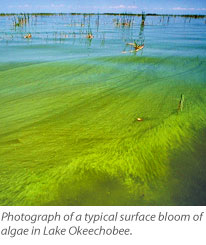World first wild algae bio-diesel tested
 Wellington, New Zealand - The world’s first wild algae bio-diesel fuel, produced in New Zealand by Aquaflow Bionomic Corporation, has been successfully used during a test drive by the New Zealand Minister for Energy and Climate Change Issues, David Parker.
Wellington, New Zealand - The world’s first wild algae bio-diesel fuel, produced in New Zealand by Aquaflow Bionomic Corporation, has been successfully used during a test drive by the New Zealand Minister for Energy and Climate Change Issues, David Parker. In front of a crowd of invited guests, media and members of the public, the Minister filled up a diesel-powered Land Rover with Aquaflow B5 blend bio-diesel and then drove the car around the forecourt of Parliament Buildings in Central Wellington.
Aquaflow announced in May that it had produced the world’s first bio-diesel derived from wild micro-algae sourced from local sewage ponds.
“We believe we are the first company in the world to test drive a car powered by wild algae-based bio-diesel. This will come as a surprise to some in the international bio-diesel industry who believe that this breakthrough is still years away”, said Aquaflow spokesperson Barrie Leay.
Bio-diesel based on algae could eventually become a sustainable, low cost, cleaner burning fuel alternative for New Zealand, powering family cars, trucks, buses and boats. It can also be used for other purposes such as heating or distributed electricity generation. There is now a global demand for billions of litres of bio-diesel per year.
Algae are also readily available and produced in huge volumes in nutrient rich waste streams such as at the settling ponds of Effluent Management Systems (EMS) It is a renewable indigenous resource ideally suited to the production of fuel and other useful by-products, says Aquaflow.
The breakthrough comes after technology start-up, Aquaflow, agreed to undertake a pilot with Marlborough District Council late last year to extract algae from the settling ponds of its EMS based in Blenheim.
By removing the main contaminant to use as a fuel feedstock, Aquaflow is also helping clean up the council’s water discharge - a process known as bio-remediation. Dairy farmers and many food processors too, can benefit in similar ways by applying the harvesting technology to their nutrient-rich waste streams.
Blended with conventional mineral diesel, bio-diesel can run vehicles without the need for vehicle modifications. Fuel derived from algae can also help meet the New Zealand Government B5 (5% blended) target, with the prospect of this increasing over time as bio-fuel production increases.
“Our next step is to increase capacity to produce one million litres of bio-diesel from the Marlborough sewerage ponds over the next year,” says Leay.
The bio-diesel was used successfully in a static engine test at Massey University’s Wellington campus on December 11, 2006.
You can return to the main Market News page, or press the Back button on your browser.

